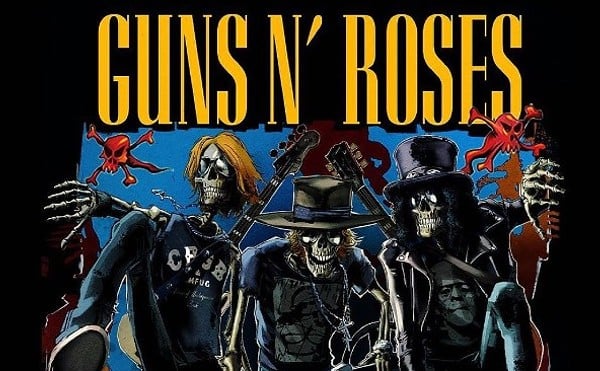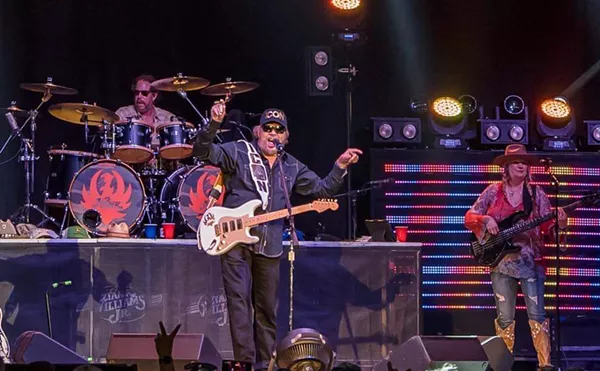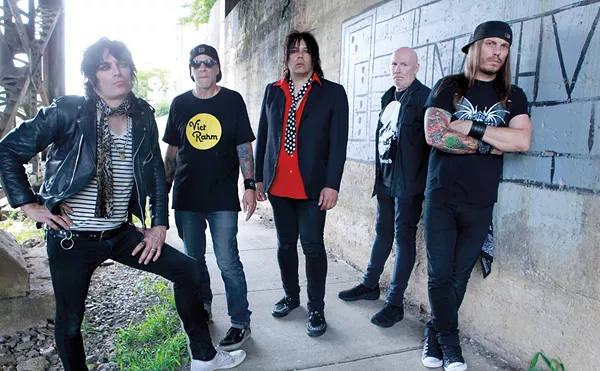MECC's elementary school computer lab classic The Oregon Trail probably taught its users relatively little about American History. The lasting impression the game did leave was the idea that choices have consequences and that, sometimes, bad things just happen, regardless of how well you plan for them. When you lost those oxen by deciding to ford the river rather than take the ferry (a test to see if you understood that, on four legs, oxen are only about four feet tall), that was on you. But there was very little you could do about that dysentery epidemic later on.
Oregon Trail was a simulation of people setting out into a world that was arbitrarily cruel and attempting to overcome it. That basic design element of Oregon Trail can be applied to a game that simulates something relevant to this blog: the life of a relatively unknown touring indie band.
The same pioneer spirit can be found in a band setting out into the unknown on its first tour. Many risks and uncertainties await, but so does the potential for success. In the following design document, I will outline the fundamentals of making such an Oregon Trail-like game revolving around the lives of touring musicians.
The Characters
In the original Oregon Trail, only the occupation of the player character was important. This game instead takes an approach similar to RPG games like the original Final Fantasy in crafting a five-person party from the following character classes:The slacker: Consistently broke, no one is actually sure how he manages to sustain his lazy but leisurely life of avoiding work as much as possible. His primary commitment is to the scene, and people view his rejection of social norms in favor of following his passions as endearing. His draw is generally 19-year-olds who are insistent on never ever selling out.
The BoBo: Short for "Bohemian Bourgeois", the BoBo comes from a privileged background and was brought up being exposed to a variety of culture which helps him add a layer of sophistication to the band's image and draw out more refined audiences. He is not arrogant about his upbringing and views his bandmates as equals.
However, he lives in constant fear of another BoBo who went to the same prep school as him outing the extent of his privilege on Tumblr and possibly killing the band's credibility.
The Virtuoso: A classically trained musician who views being in the band as an escape from the rigid dogmatism of the institution. However, he often comes to the conclusion that his bandmates' approach to writing music is trite and uninspired. Whenever he contributes ideas, his non-Virtuoso bandmates think they are too weird.
The Virtuoso draws similarly minded music nerds, often drum majors, who are obsessed with irregular time signatures and changes in modality. He listens to John Cage and gamelan ensembles when he drives the van. Most of his bandmates think this is weird, but the BoBo, being a natural consumer of culture, seeks to understand it.
The Working Stiff: These kinds of people are oftentimes unable to play local shows because they can't get the time off from their soul-crushing part-time jobs. The upcoming tour may guarantee that they won't even have that job when they return.
Their draw is often limited because they commit more time to trying to pay rent than being scene celebrities, but sometimes they use music as an efficient outlet for their pent-up frustration, cultivating an angry mystique that can seem captivating to those who don't know that they work at an ice cream shop.
The Merch Guy: A young person, eager to step their rep up in the scene, who views going on the road with the one band that managed to get out of this crummy town as a unique privilege. Band members generally view him as an extra source of tour funding and a person who will carry things when they don't feel like it.
Incase
Over time, he will discover that his local heroes are flawed and fragile human beings and decide never to go on another tour again.
Gender: I used "he" as the pronoun in most of these cases, however all character classes can be women as well. The dimension that this adds to the game is that people in the music scene will be needlessly obsessed with the character not possessing a Y chromosome, sometimes treating her with either blatant misogyny, or well-intended but flawed praise that tokenizes her as a "girl who rocks!" and gets the band on Lilith Fair-like fests that may pigeonhole female musicians more than empower them.
Next: The Gameplay






